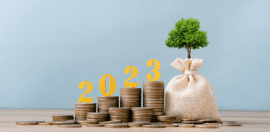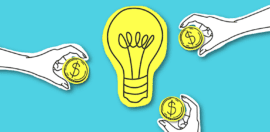Aussie impact investing market grows to $20 billion

2 June 2020 at 8:00 am
Nine in 10 investors believe that impact investing will become more significant over the next five years
The Australian impact investing market has more than tripled over the past two years, and advocates believe strong investor confidence will endure despite the ongoing COVID-19 crisis.
A new study from Responsible Investment Association Australasia (RIAA) found the market has grown from $5.7 billion at the end of 2017 to $19.9 billion at the end of last year.
The report also contains new survey data showing that Australian investors intend to increase their allocation towards impact investments more than fivefold to $100 billion over the next five years.
Over the same period, 90 per cent of investors agree that impact investing will become a more significant part of the investment landscape.
RIAA CEO Simon O’Connor said now that responsible investment has gained mainstream traction in financial markets, the next iteration requires investors to demonstrate the real-world outcomes they are generating.
“As evidence mounts that companies with better records on social issues, environmental sustainability and good governance are more resilient to COVID market turbulence, this study shows a market delivering strong financial returns, while also positively impacting the lives of tens of thousands of people,” O’Connor said.
The Australian impact investment landscape is dominated by green, social and sustainability bonds ($17 billion), with real assets ($2.2 billion), private debt ($287 million), public equity ($195 million), private equity ($97 million), and social impact bonds ($66 million) also prevalent.
These investments have resulted in wide-ranging benefits for the community, which include creating 32,000 homes for people who are either low-income, living with disability or transitioning out of homelessness; producing 84,000 GWh of renewable energy; and delivering 788,000 healthcare treatments and mental health interventions.
COVID-19 is no reason for investors to panic
The RIAA’s survey of 125 investors was completed in January – before the full impact of COVID-19 was felt.
But O’Connor dispelled the notion that an economic downturn would make investors hesitant to consider impact investing.
“I think that almost the contrary is true, that in fact there will be a strengthening of convictions around the need for investors to consider a broader array of factors in their investments, including social and environmental factors,” he told Pro Bono News.
“That alignment is strong enough now so that this intention [to invest responsibly] is not going to waver.
“And this is important as we try to work out how we recover from COVID-19, how we rebuild our economy, how we create meaningful jobs and support healthy communities.
Hanna Ebeling, the CEO of Social Enterprise Finance Australia (SEFA), agreed that the appetite for impact investing will remain strong.
But she told Pro Bono News there might be some short-term pain.
“In the immediate short term, people will potentially be more distracted and even cautious around investments, whether that’s around impact or more traditional investing,” Ebeling said.
“But in the medium to long term, already I’ve heard voices in the market say that impact capital can actually help to build back better. So we believe that the [for-purpose community] is actually very well placed to help us get out of this crisis.
Ebeling added that impact investing was vital for the viability of community organisations.
She noted the success of Shopfront Arts Co-op, which delivers outreach, accessibility and emerging artist programs to culturally and linguistically diverse people, those with disability and at-risk youth.
SEFA worked with Shopfront to help it secure more than $2 million in impact capital – including $350,000 in philanthropic support from the Vincent Fairfax Family Foundation – which allowed it to support an extra 1,160 participants and generate rental income from six additional offices and a new large rehearsal/performance space.
“It’s a good example of a blended transaction. SEFA is often the orchestrator in the middle trying to move a project along, and trying to find a balance between the government grants and philanthropic contributions,” Ebeling said.
“At the same time it’s about supporting an organisation to build up its internal capacity to actually make best use of investments.”
Scaling social impact investments
RIAA’s research follows the release of a new report from UTS Business School examining how to scale up social impact investing in Australia.
UTS researchers collaborated with the NSW Office of Social Impact Investment (OSII) and key stakeholders to review current NSW social impact investment programs and consider future approaches.
The report highlighted a number of potential ways to scale investments, including by developing and implementing social impact bonds simultaneously or sequentially with the same provider.
It also examined several barriers to success, such as capacity limits and jurisdictional challenges in the execution stage, managing risk and picking metrics in the negotiation stage, and resourcing post-completion.
The full report can be seen here.









Great article. Impact investing with social and/or environmental outcomes should be part of building back better.